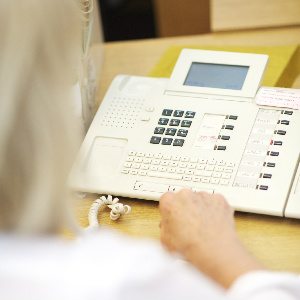Exclusive GPs will work in NHS 111 call centres as part of an NHS England pilot aimed at increasing clinical input in decisions over the coming months, Pulse can reveal.
The news, unveiled in an internal presentation document on ‘GP early intervention’ plans, which Pulse has seen, explained that the pilots are due to run ‘throughout May’.
The pilots, some of which have started already, will test a number of options for how GPs may be able to help improve the service that patients receive via NHS 111. This will include looking at how ‘clinical outcomes’ are affected by having GPs patrolling the call centre floors or by situating them at out-of-hours sites, the document revealed.
The trials are being conducted by eight NHS 111 providers across England, including the West Midlands Ambulance Service, London Central and West Unscheduled Care Collaborative, and North West Ambulance Service.
The news comes after NHS England said in November that it would add more clinical support to 111 as part of a major revamp of the service spurred by recommendations from Sir Bruce Keogh’s urgent care review, but it has not been clear to date how GPs may fit into plans. All reprocurement of NHS 111 contracts has been put on hold by NHS England in anticipation of a new commissioning standards document – to include this new guidance – the first draft of which is expected on 6 May.
And, despite the GP early intervention pilots running beyond that time frame, NHS England confirmed that they would help inform the commissioning standards document, with new evidence to be added to it as it emerged. It comes after the NHS 111 service – which replaced the nurse-led NHS Direct predecessor – has been criticised for a lack of clinical input, instead relying on lay call handlers and computer triage.
The presentation document said: ‘Earlier GP intervention in the referral process is expected to improve the clinical outcome and appropriateness of referrals in line with the recommendations of the urgent care review… This pilot will introduce a process for GPs within the 111 service to provide enhanced clinical input to callers.’
It added that based on the pilots NHS England would evaluate ‘if the provision of enhanced clinical input within 111 delivers improved clinical outcomes for patients’ or if there was ‘any impact of earlier GP intervention on the receiving service’. The pilots will also help to ‘establish the most effective forms of early GP intervention (e.g. floor-walking vs desk based, on-site or based within GP out-of-hours site).’
An NHS England spokesperson said: ‘Some of the pilots have already started and others are due to start. NHS England will be publishing commissioning standards using readily available evidence. Where this doesn’t exist, emerging evidence from the pilots and other sources will be considered. These are commissioning standards against which local commissioners will tailor their local service specification.’
Since November, NHS England has also been consulting out-of-hours providers and CCGs via local workshops and meetings for input on the future shape of NHS 111.
Dr John O’Malley, medical director of GP out-of-hours provider Mastercall Healthcare and committee member at BMA Medical Managers Committee attended one of the events.
He said: ‘Relying on [the triage algorithm] works incredibly well in some areas and not so well in others. The crux is what level of clinical support [to add], because if you go too far you actually start reinventing the wheel.’
NHS England will also be evaluating the impact of NHS 111 on GP out-of-hours services and conducting other pilots on secondary triage by ambulances, and central access to crisis records for vulnerable patients.

GP survey
Give us your opinions on the latest developments in general practice and you will get the chance to win an Samsung HD TV

















